Bird of ill omen
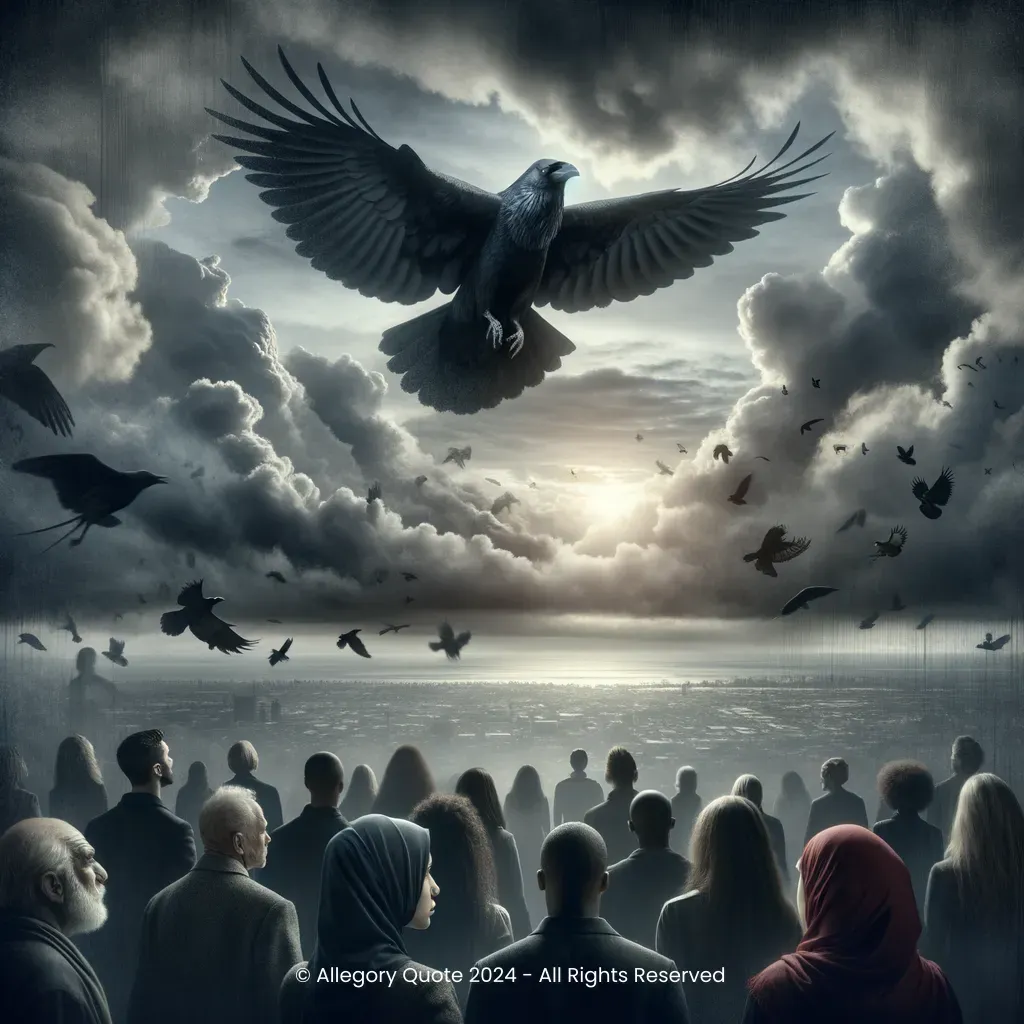
0
0
0
0
- Meaning
- The phrase "uccello del malaugurio" evokes the metaphorical image of a bird that brings bad news. In Western symbolism, birds are often seen as messengers, and some species, such as the crow or the owl, are traditionally associated with omens of misfortune. The idea suggests that a "uccello del malaugurio" spreads negativity and pessimism, often affecting the mood and expectations of others in a negative way.
- Allegory
- The allegorical image represents the essence of the phrase "uccello del malaugurio" through the use of visual symbols such as the crow, which has historically been associated with bad omens. The gray and stormy landscape and the worried people reinforce the idea of expecting misfortune. However, the rays of sun filtering through the clouds symbolize hope and the possibility of positive change, balancing the idea of ill omen with a message of resilience and optimism. The entire scene serves to evoke reflection on the power of words and predictions, and how they can influence people's perceptions and emotions, while also suggesting that there is always room for hope.
- Applicability
- The main lesson to be drawn from this phrase is the importance of attitude and language in shaping one's perception of reality. In everyday life, it is advisable to be aware of how one's words and attitudes can influence others. Trying to convey positive and constructive messages can help create a more optimistic and encouraging environment, reducing the impact of negative predictions and bad news.
- Impact
- The phrase has had a significant impact on Italian culture and language, entering common parlance and frequently being used to describe people who seem to bring only bad news. The immediate and visual image of a bird that foretells misfortune has made this expression particularly memorable. It has also been used in literature and media to characterize certain characters or situations.
- Historical Context
- There is no specific origin date for this phrase, but it probably has its roots in European folklore, which attributed symbolic meanings to animals, especially birds, as far back as the Middle Ages.
- Criticisms
- There are no particular documented controversies related to the use of this phrase, although someone might find it unfair or excessive to label people who are perhaps merely realistic or attentive to negative details as "bearers of misfortune." A critique could be that the phrase might have a discouraging effect on those who are naturally worried or pessimistic, labeling them negatively without considering their intentions or personality.
- Variations
- There are not many known variations of this expression in Italian culture. However, in other cultures, there might be expressions with similar meanings. For example, in English, "a bird of ill omen" or "doom-monger" is used to denote a person who predicts misfortune. The interpretations remain consistent: someone who brings negative news or is a bad omen.
-

Vox populi, vox Dei.
-
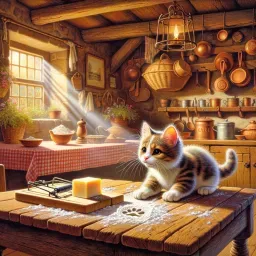
So often the cat goes to the lard that it leaves its paw print.
-
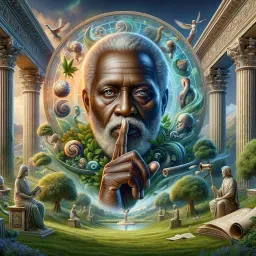
Qui nescit tacere, nescit loqui.
-
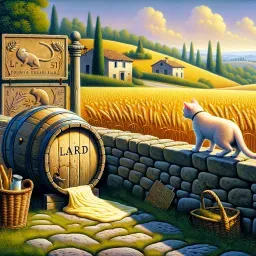
The more the cat goes to the lard, the more likely it is to lose a paw.
-

It's a piece of cake.
-

When we are born, we cry that we are come to this great stage of fools.
-
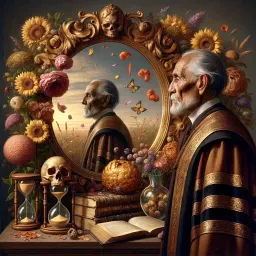
Memento mori.
-

Sic transit gloria mundi.
No Comments